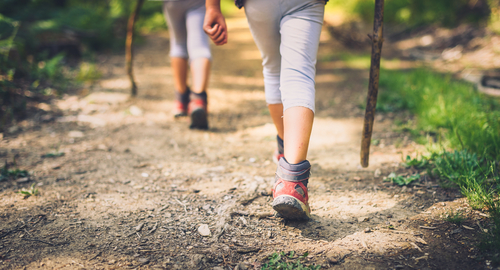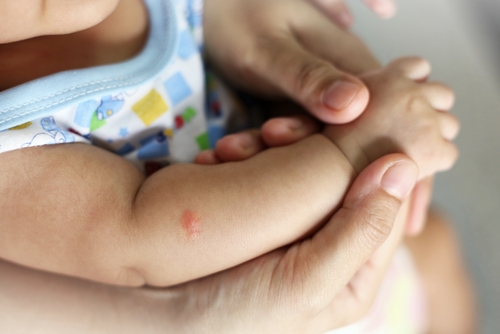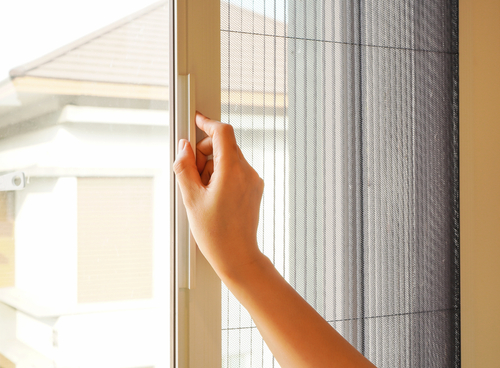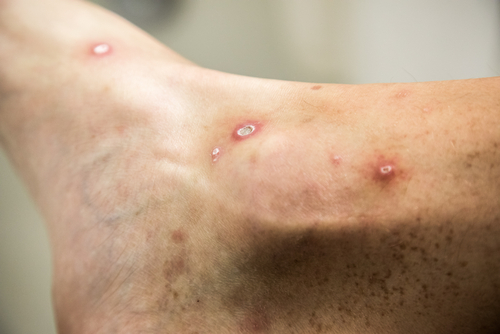
What Are the Most Common Household pests?
August 9, 2021
Why Pest Control Service For Your Home Garden Is Important?
September 28, 2021What do Infected Mosquito Bites Look Like?

What do Infected Mosquito Bites Look Like? Spending time outside in the warmer months unfortunately comes with the annoyance of mosquito bites. While the possibility of a mosquito bite becoming infected is small, many people experience minor and severe infections each year.
Despite their tiny stature and fragile bodies, mosquitos are statistically the most dangerous insect in the world. They transfer more disease and causing more infections than black widow spiders, yellow jackets, and scorpions combined.
Read on – What do Infected Mosquito Bites Look Like?
You are most likely to experience a mosquito bite in mosquito-dense environments

The best way to avoid an infected mosquito bite is to avoid areas where mosquitos are high in volume. Areas near still water such as swamps, lakes, and ponds are a perfect environment for mosquitos. Mosquitos lay their eggs in stagnant water and remain close to these areas after hatching.
Many hiking trails, recreational areas, and camping sites are located in close proximity to these ideal mosquito habitats. Exposing millions of people each year to their bites and the possibility of infection.
When biting us, a mosquito will use its proboscis, which is its sharp mouthpiece, to pierce our skin and suck our blood. During this process, the mosquito also injects its saliva into our skin. This causes the itch and swollen sensation we experience after a run-in with a mosquito.
The threat of infection is present with any mosquito bite. A bite involves exposing open, broken skin to an array of bacteria. The act of itching an aggravated bite also creates a mode of transmission for any bacteria being harbored on our hands, fingers, or under our fingernails to get access to our unprotected wound.
Can A Mosquito Bite Cause Infection?

Any insect bite can pose a threat of infection if not properly cared for. While we cannot always avoid their initial bite, there are steps we can take to fortify ourselves from infection. If you are a frequent hiker, camper, or just someone who enjoys spending time outdoors, consider carrying the following items in a backpack:
- Sterile gauze: any fabric used to treat or cover a mosquito bite should be sterile, meaning it is free of any microbes.
- Alcohol pads: small, single-use alcohol pads are available in bulk at every superstore and drugstore and offer an easy way to clean any bites before covering them.
- Bacitracin: antibacterial ointment is an excellent barrier for exposed, broken skin. The ointment not only kills potential bacteria but keeps the wound hydrated and physically protected from debris such as dirt or dust from entering the wound.
- Bandages: physically covering a bite is a great way to protect it from becoming infected. While airing out a bite in the comfort of your own home is safe, having an exposed bite in the woods or other outdoor setting poses a threat.
How to identify an infected mosquito bite

An infected mosquito bite is no joking matter and can cause serious health problems if not tended to. Infected mosquito bites have similar symptoms as any other bodily infection. Pus or discharge at the site of punctured skin. Chills or fever. Bright redness around the bite location.
A hot feeling when you touch the bite area, and even swelling of lymph nodes for severe, advanced infection. If you are trying to decipher if a mosquito bite is infected, there are three identifiers that can aid you in the process.
Touch the bite.
With a clean, gloveless finger, gently touch on and around the mosquito bite. If the flesh near the bite feels increased in temperature, it is likely infected. Our bodies increase the temperature when fighting an infection to prevent bacteria from thriving. If your entire body has a feeling of feverish warmness, your infection is more advanced.
Examine any discharge or liquid near the wound.
Yellow or green-tinted pus is a telltale sign of infection in a mosquito bite. While not all liquid is bad, such as clear, transparent discharge, any pus with yellow or green undertones should be inspected by a trained, medical doctor. The aforementioned clear discharge can be a sign of healing and is not always correlated to infection.
Inspect the skin tone surrounding the bite.
If a bite is presenting as deep pink, bright red, or deeper purple color, then an infection may be present. Most infected bites are surrounded by a visible, obvious ring of red that is hot to the touch and more swollen than other tissue.
Small infections can potentially remedy themselves with proper care and wound dressing, but it is ideal to seek professional medical attention if the bite does not improve, or if the bite gets worse after 48-72 hours.
Medical doctors will most likely prescribe oral antibiotics to rid you of infection. Regular antibiotic treatment can be detrimental to human health, and is a large reason why ensuring infection does not occur in the first place is so important.
Preventing mosquito bites

The only way to entirely avoid developing an infected mosquito bite is to protect ourselves from the dangers of mosquitos. Purchasing bug spray specially designed for deep wood hiking is an excellent way to ward off mosquitos.
Wearing long clothing such as sweatshirts, jeans, and high-rise socks prevents mosquitos from gaining access to your skin. Avoiding areas near still water and moist environments is the ideal way to avoid infected bug bites. If you live in a wooded area and cannot circumvent mosquitos altogether, several options are available for you, too.
Mosquito nets can prevent these pests from entering children’s play areas, deck or patio areas, or tents and hammocks. Citronella candles are also a popular option for people who enjoy spending time outside.
What do Infected Mosquito Bites Look Like? – Conclusion

Steering clear of mosquitos and their bothersome bites is not always possible, but with the right knowledge and skillset, you can identify and prevent infected mosquito bites.



